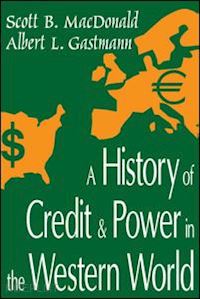
Questo prodotto usufruisce delle SPEDIZIONI GRATIS
selezionando l'opzione Corriere Veloce in fase di ordine.
Pagabile anche con Carta della cultura giovani e del merito, 18App Bonus Cultura e Carta del Docente
This volume examines the evolution of credit in the Western world and its relationship to power. Spanning several centuries of human endeavor, it focuses on Western Europe and the United States and also considers how the Western system became the global credit system. Six major themes run throughout: (1) the direct relationship between credit and power; (2) different kinds of political power promote different kinds of economic behavior; (3) various societal and cultural groups were often more successful in mingling credit and political power; (4) the Western credit system evolved in tandem with the development of the nation-state; (5) historically, there has been a pattern of financial crises; (6) credit spread from being the privilege of the wealthy and powerful to being available to vast numbers.
MacDonald and Gastmann have broken history into five periods, ranging from early pre-modern, defining the earliest references to banking and credit as exemplified by the Code of Hammurabi, circa 1726 BC, through the Roman Empire with its creation of money and growing use of credit in trade, the barbarian invasions of the 11th century whichled to a breakdown in credit networks in the West, through the establishment of the Italian city-states, to the modern period which incorporates the rise of credit in the Low Countries in the 1500s and extends through the rise of London and New York as the major internation











Il sito utilizza cookie ed altri strumenti di tracciamento che raccolgono informazioni dal dispositivo dell’utente. Oltre ai cookie tecnici ed analitici aggregati, strettamente necessari per il funzionamento di questo sito web, previo consenso dell’utente possono essere installati cookie di profilazione e marketing e cookie dei social media. Cliccando su “Accetto tutti i cookie” saranno attivate tutte le categorie di cookie. Per accettare solo deterninate categorie di cookie, cliccare invece su “Impostazioni cookie”. Chiudendo il banner o continuando a navigare saranno installati solo cookie tecnici. Per maggiori dettagli, consultare la Cookie Policy.